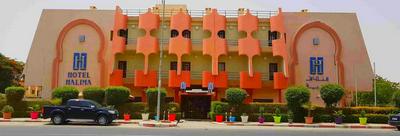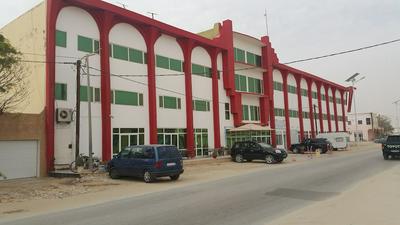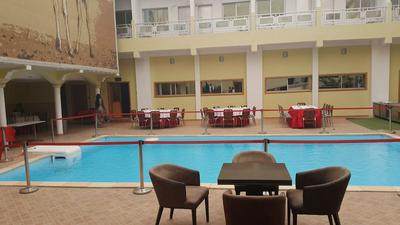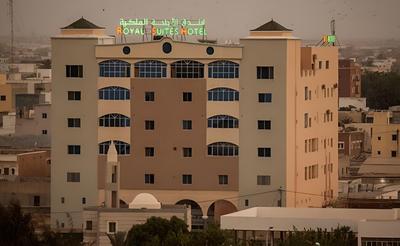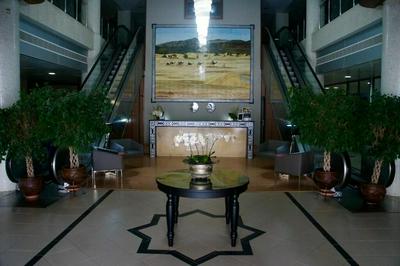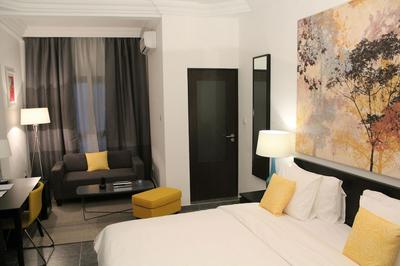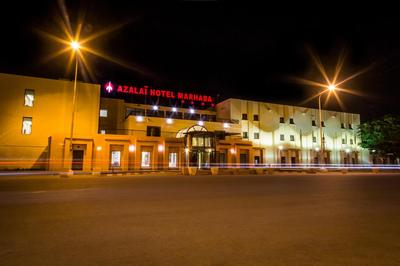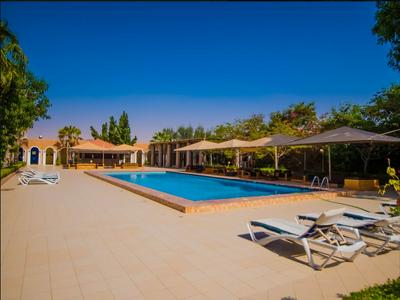When to visit Mauritania during the year?
Mauritania boasts a predominantly desert climate, characterized by hot summers and mild winters. The best time to visit is from November to February when temperatures are more moderate, ideal for exploring the stunning landscapes and historic sites without the scorching heat. During the summer months, particularly June to August, temperatures can soar above 40°C (104°F), making outdoor activities challenging. Popular attractions like the ancient city of Ouadane and the picturesque Banc d'Arguin National Park draw visitors year-round but are especially vibrant during the cooler months. Spring and autumn offer transitional weather but also possess unique beauty with blooming flora in various regions. Major tourist peaks usually occur during the winter season.
How to get to Mauritania?
Reaching Mauritania can be an adventure in itself, with several transportation options available. The most convenient way is by air, with various international flights arriving at key airports. For those looking to experience the local vibe, bus travel can connect you between cities, although it may take longer. Road trips offer a chance to explore the stunning landscapes, but be prepared for varying road conditions. Rail travel is more limited in Mauritania, as international service is sparse.
- Main airports include Nouakchott-Oumtounsy International Airport (NKC) and Nouadhibou Airport (NDB), both receiving flights from major cities worldwide.
- International routes connect to cities like Paris, Casablanca, Madrid, and Dakar.
- Non-stop flights from Europe typically take around 4 to 6 hours, while connections from North America can exceed 12 hours.
- Low-cost airlines like Air France, Royal Air Maroc, and Mauritania Airlines International offer competitive fares.
- Main bus stations are located in Nouakchott and connect to cities like Nouadhibou, Akjoujt, and Atar.
- Bus companies like Goutte d'Or provide reliable services with varying travel durations according to routes.
- Limited international train service connects Mauritania with Senegal, primarily for freight and occasional passenger routes.
- Internal routes mainly serve to transport goods, with few options for travelers.
- Main highways include the RN1 connecting from Nouakchott to Nouadhibou, with good but occasionally challenging road conditions.
- Distances from major cities worldwide need a well-planned route, with significant travel times depending on starting point.
- Some tolls may apply, and road conditions can vary greatly, so ensure your vehicle is in good shape.
Tourist activities in Mauritania
Mauritania, with its vast deserts and rich history, offers a plethora of activities that cater to various interests. For those keen to explore natural beauty, the stunning sands of the Sahara Desert provide opportunities for camel trekking and stargazing, featuring landscapes that stretch as far as the eye can see. You can embark on an adventure to the UNESCO-listed Chinguetti, known for its ancient manuscripts and spectacular dunes, or relax on the beaches of Nouadhibou.
History buffs will appreciate the ancient city of Ouadane, where the remnants of past cultures unveil fascinating stories about the trans-Saharan trade. Cultural experiences abound, particularly in the capital, Nouakchott, where vibrant markets and local music reflect the essence of Mauritanian life. Bird watchers will revel in the diversity at Banc d'Arguin National Park, home to thousands of migratory birds, making it a perfect spot for eco-tourism. For thrill-seekers, sandboarding down the dunes near Atar is a must-try experience that guarantees fun. Whether you're seeking relaxation or adventure, the activities in Mauritania promise an unforgettable journey.
Accommodation in Mauritania
Mauritania offers various accommodation options to suit different budgets and preferences. In cities like Nouakchott and Nouadhibou, visitors can find modern hotels ranging from luxury establishments, usually positioned along the coast, to more budget-friendly guesthouses. Prices vary significantly depending on the season; in peak tourist months (November to February), luxury hotel rates can reach around $100-$200 per night, while budget options may start from $20. Traditional desert lodges provide a unique experience for those venturing into the Sahara, combining comfort with local cultural elements. For a home-like feel, self-catered apartments are increasingly popular for longer stays, offering amenities for families or groups. Be sure to book in advance during high season to secure the best deals and availability.
Food in Mauritania
Mauritanian cuisine is a delightful mix of flavors and influences, reflecting its cultural diversity. The national dish, '', is a must-try, featuring a hearty combination of rice, fish, and seasoned with local spices. Couscous is another staple enjoyed by locals, often served with meat and vegetables. Fresh seafood is abundant, particularly in coastal cities like Nouadhibou, where you can savor grilled fish or octopus dishes from local eateries. Traditional drinks include mint tea, which holds cultural importance, and is typically enjoyed throughout the day. Most meals in local restaurants range from $5 to $15, depending on the dish. Visiting the bustling local markets in Nouakchott provides an excellent opportunity to experience authentic flavors and fresh ingredients.
Important numbers and information
- Emergency Services:
- Police: 17
- Ambulance: 18
- Fire Brigade: 19
- Embassy Contacts:
- U.S. Embassy: +222 45 25 26 00
- UK Embassy: +222 45 25 10 30
- Main Airports:
- Nouakchott-Oumtounsy International Airport (NKC)
- Nouadhibou Airport (NDB)
- Currency: Mauritanian Ouguiya (MRU), cash is widely used, and ATMs are available in larger cities.
- Visa Requirement: A visa is required for most nationalities; consult your embassy before travel for specific regulations.
- Passport: Make sure your passport is valid for at least six months beyond your intended departure.
What to see in Mauritania?
Mauritania is rich in history and natural beauty, making it a treasure trove of sights for travelers. Starting in the capital, Nouakchott, visitors can enjoy vibrant markets and the mesmerizing beachfront. Further afield, the city of Chinguetti, a UNESCO World Heritage site, boasts ancient libraries and historic architecture that speak to the region's storied past. The picturesque dunes of the Sahara at Atar offer breathtaking vistas and opportunities for adventure. Banc d'Arguin National Park showcases the unique bird species migrating along the coast, appealing to nature enthusiasts. Don't miss the impressive historic site of Ouadane, which features the legacy of trade routes that shaped the region over centuries. Each destination in Mauritania has its distinct charm, promising an enriching travel experience.
History, geography and climate
Mauritania's history is a tapestry woven with influences from various cultures due to its strategic location along ancient trade routes. The region has seen the rise of empires and the spread of Islam since the 8th century. Geographically, the country is characterized by vast deserts, such as the Sahara, alongside coastal plains and river valleys. Its landscape is both harsh and beautiful, forming a unique backdrop for exploration. The climate features hot summers with temperatures exceeding 40°C (104°F) from June to August, while winter brings milder temperatures averaging around 20°C (68°F). Rain is scarce, with most precipitation occurring between July and September. Understanding these elements adds depth to the experience of visiting this fascinating country.
Population and culture
Mauritania has a diverse population of approximately 4.5 million, primarily composed of Arab-Berber and sub-Saharan communities. Arabic is the official language, with French widely used in education and government, while various ethnic groups communicate in their native languages. Islam is the predominant religion, shaping the country's cultural practices and festivals. Mauritania is known for its rich traditions, including poetry, music, and storytelling, with events like the annual Festival of the Desert celebrating these arts. Unique aspects of Mauritania's culture include the importance of hospitality and the communal nature of its society. National holidays, like Independence Day on November 28, reflect the country's pride and history. Engaging with local customs offers travelers a chance to understand and appreciate the cultural fabric of Mauritania.

